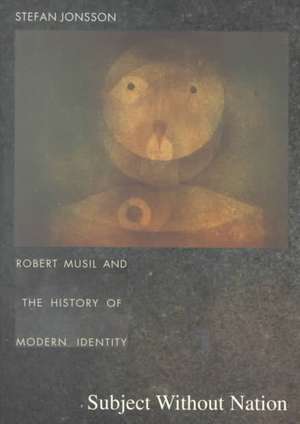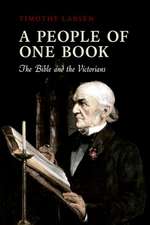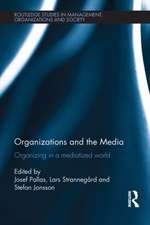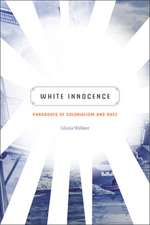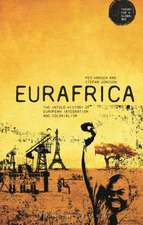Subject Without Nation – Robert Musil and the History of Modern Identity: Post-Contemporary Interventions
Autor Stefan Jonssonen Limba Engleză Paperback – 23 ian 2001
It was to this society that Musil responded in his great work The Man Without Qualities. Exploring the nooks and crannies of this modernist classic, Jonsson shows that Musil's narrative evolves along two axes that must be considered in tandem: Whereas the central plot portrays a Viennese elite that in 1913 attempts to restore social cohesion by gathering popular support for the cultural essence of the empire, the protagonist discovers that he lacks essence altogether and finds himself attracted by monsters, criminals, and revolutionary figures that reject the social order. In this way, Musil's novel traces the disappearance of what Jonsson calls the expressivist paradigm-the conviction that identities such as gender, nationality, class, and social character are expressions of permanent intrinsic dispositions. This, Jonsson argues, is Musil's great legacy. For not only did the Austrian author seek to liquidate prevailing conceptions of personal and cultural identity; he also projected "a new human being," one who would resist assimilation into imperialist, nationalist, or fascist communities.
Subject Without Nation presents a new interpretation of Viennese modernity and uncovers the historical foundations of poststructural and postcolonial reconceptualisations of human subjectivity. Illuminating links between Musil's oeuvre as a whole and post-war developments in critical thought, this book locates an important crossroads between literary criticism, intellectual history, and cultural theory.
Din seria Post-Contemporary Interventions
-
 Preț: 194.51 lei
Preț: 194.51 lei -
 Preț: 159.67 lei
Preț: 159.67 lei -
 Preț: 203.53 lei
Preț: 203.53 lei -
 Preț: 239.81 lei
Preț: 239.81 lei -
 Preț: 310.83 lei
Preț: 310.83 lei -
 Preț: 210.08 lei
Preț: 210.08 lei -
 Preț: 264.26 lei
Preț: 264.26 lei -
 Preț: 258.90 lei
Preț: 258.90 lei -
 Preț: 239.54 lei
Preț: 239.54 lei -
 Preț: 241.11 lei
Preț: 241.11 lei -
 Preț: 312.96 lei
Preț: 312.96 lei -
 Preț: 335.51 lei
Preț: 335.51 lei -
 Preț: 307.74 lei
Preț: 307.74 lei -
 Preț: 231.22 lei
Preț: 231.22 lei -
 Preț: 239.54 lei
Preț: 239.54 lei -
 Preț: 266.77 lei
Preț: 266.77 lei -
 Preț: 265.20 lei
Preț: 265.20 lei -
 Preț: 309.49 lei
Preț: 309.49 lei -
 Preț: 229.09 lei
Preț: 229.09 lei -
 Preț: 300.06 lei
Preț: 300.06 lei -
 Preț: 266.55 lei
Preț: 266.55 lei -
 Preț: 299.29 lei
Preț: 299.29 lei -
 Preț: 305.61 lei
Preț: 305.61 lei -
 Preț: 308.72 lei
Preț: 308.72 lei -
 Preț: 266.77 lei
Preț: 266.77 lei -
 Preț: 238.99 lei
Preț: 238.99 lei -
 Preț: 262.32 lei
Preț: 262.32 lei -
 Preț: 203.18 lei
Preț: 203.18 lei -
 Preț: 262.91 lei
Preț: 262.91 lei -
 Preț: 240.35 lei
Preț: 240.35 lei -
 Preț: 203.56 lei
Preț: 203.56 lei -
 Preț: 264.82 lei
Preț: 264.82 lei -
 Preț: 210.08 lei
Preț: 210.08 lei -
 Preț: 300.06 lei
Preț: 300.06 lei -
 Preț: 306.99 lei
Preț: 306.99 lei -
 Preț: 265.97 lei
Preț: 265.97 lei -
 Preț: 195.41 lei
Preț: 195.41 lei -
 Preț: 211.04 lei
Preț: 211.04 lei -
 Preț: 221.33 lei
Preț: 221.33 lei -
 Preț: 266.47 lei
Preț: 266.47 lei -
 Preț: 209.85 lei
Preț: 209.85 lei -
 Preț: 232.87 lei
Preț: 232.87 lei -
 Preț: 268.46 lei
Preț: 268.46 lei -
 Preț: 310.08 lei
Preț: 310.08 lei -
 Preț: 303.11 lei
Preț: 303.11 lei -
 Preț: 301.97 lei
Preț: 301.97 lei -
 Preț: 267.70 lei
Preț: 267.70 lei -
 Preț: 267.15 lei
Preț: 267.15 lei -
 Preț: 203.34 lei
Preț: 203.34 lei -
 Preț: 311.22 lei
Preț: 311.22 lei
Preț: 302.36 lei
Nou
Puncte Express: 454
Preț estimativ în valută:
57.86€ • 59.78$ • 48.16£
57.86€ • 59.78$ • 48.16£
Carte tipărită la comandă
Livrare economică 26 martie-09 aprilie
Preluare comenzi: 021 569.72.76
Specificații
ISBN-13: 9780822325703
ISBN-10: 0822325705
Pagini: 392
Ilustrații: 11 b&w photographs
Dimensiuni: 159 x 217 x 26 mm
Greutate: 0.53 kg
Ediția:New.
Editura: MD – Duke University Press
Seria Post-Contemporary Interventions
ISBN-10: 0822325705
Pagini: 392
Ilustrații: 11 b&w photographs
Dimensiuni: 159 x 217 x 26 mm
Greutate: 0.53 kg
Ediția:New.
Editura: MD – Duke University Press
Seria Post-Contemporary Interventions
Recenzii
"An ambitious, authoritative new reading of The Man Without Qualities, which establishes forcefully the relevance of the fascination of the incomparable Austrian writer. A Robert Musil for the twenty-first century? Yes. And Jonsson's book is as suggestive about the summative powers of Musil the novelist as about that still incompletely charted cultural labyrinth called 'modernity' in which we contine to wander."--Susan Sontag
Notă biografică
Textul de pe ultima copertă
"An ambitious, authoritative new reading of "The Man Without Qualities, " which establishes forcefully the relevance of the fascination of the incomparable Austrian writer. A Robert Musil for the twenty-first century? Yes. And Jonsson's book is as suggestive about the summative powers of Musil the novelist as about that still incompletely charted cultural labyrinth called 'modernity' in which we continue to wander."--Susan Sontag
Cuprins
Preface ix
Abbreviations xv
Introduction 1
Chapter 1. Topographies of Inwardness 21
Chapter 2. The Architecture of Modern Identity 60
Chapter 3. A Story with Many Ends 97
Chapter 4. Subjectivity Degree Zero 133
Chapter 5. Monsters in Love, Angels at War 175
Chapter 6. The Most Progressive State 217
Epilogue 263
Notes 271
Bibliography 337
Index 365
Abbreviations xv
Introduction 1
Chapter 1. Topographies of Inwardness 21
Chapter 2. The Architecture of Modern Identity 60
Chapter 3. A Story with Many Ends 97
Chapter 4. Subjectivity Degree Zero 133
Chapter 5. Monsters in Love, Angels at War 175
Chapter 6. The Most Progressive State 217
Epilogue 263
Notes 271
Bibliography 337
Index 365
Descriere
Jonsson analyzes how Musil explains the foundation of modern theories of subjectivity.
